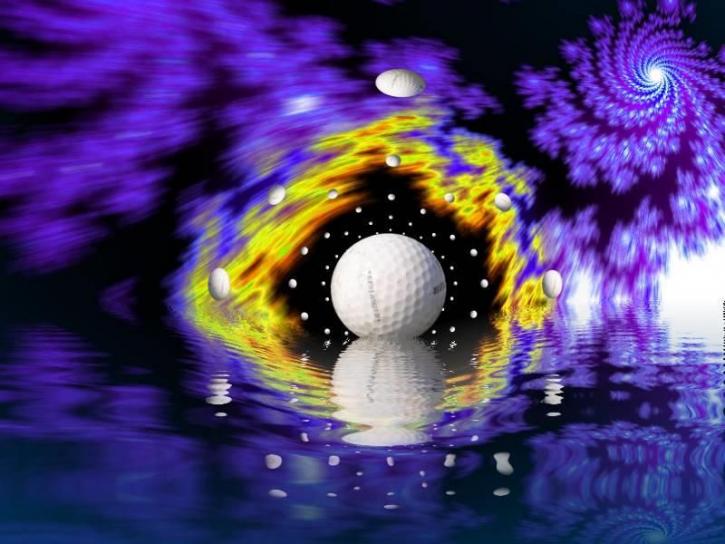
If the galaxy is a golf ball, how far to the next galaxy?
Share
Welcome all to another edition of Ask ARSE; where ARSEtralian prod us with their queries about the deep unknown. This weeks question comes from Adrian in our illustrious Australian Space Society (ASS). So without further ado....
"Hey ARSE, I was wondering if an average galaxy is the size of a golf ball, how far would the next average sized galaxy be on average?"
ADRIAAAAAAAAAAAN!
Apologies for the Rocky joke, couldn't help it.
Not that far, actually. Galaxies are fairly large things. The Milky Way would be a typical spiral galaxy, and it’s about 100,000 light years across. The nearest major galaxy, Andromeda, is a little over two million light years from here. So if a galaxy is a golf ball, a typical distance between neighboring galaxies would be a yard or so.

Mind you, a galaxy is an incredibly big object. Far beyond anything we can grasp intuitively. I sometimes use the following example: suppose the Sun is a large beach ball a little over 1 metre across. You’re looking at it all the way across the length of a large sports field around (90-100 metres). It’s still glowing so hot, its heat almost burns your face. Now hold up a small grape. That’s the Earth. Hold up a peppercorn about a foot from the grape. That’s the Moon. Jupiter would be a small orange one third of a mile away. And the next star? Well… the Earth is not large enough to put it anywhere.
The farthest (antipodal) point on the Earth’s surface is 20,000 km from you, but the next star would have to be placed some 30,000 km away. As to how big the Milky Way is on this scale (remember, I reduced the Sun to a beach ball) with all the billions (!) of stars that it contains… it would stretch all the way from here to Jupiter (the real Jupiter, that is.)
In other words, reducing the Milky Way to the size of a golf ball amounts to reducing the entire Solar System to below subatomic scales.
And just for fun I've included what the planets in our solar system would look like if they were fruit.

Thanks for asking Adam and keep spreading ARSE into the deep unknown.
#Space_Aus




